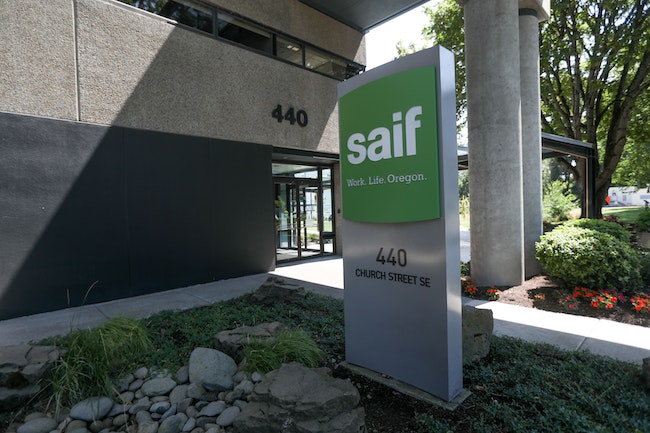
SAIF Conference Center in downtown Salem (Amanda Loman/Salem Reporter)
Worker’s compensation insurer SAIF will require all of its employees to be vaccinated against Covid by Jan. 10.
SAIF CEO Chip Terhune announced the policy in a memo to employees Monday, saying it would apply even to remote workers.
The state-chartered, not-for-profit company employs 1,077 people and is headquartered in Salem, making it one of the city’s largest employers. It provides worker’s compensation insurance for about 54,000 Oregon companies.
“While we will consider religious and medical exceptions to this policy, we will not make additional exceptions for those working remotely, nor offer weekly testing instead of vaccination,” Terhune wrote.
Oregon Gov. Kate Brown has previously mandated most state workers, as well as school district and health care provider employees, be vaccinated against Covid or request medical or religious exception. A federal vaccination mandate issued by the Biden administration, which covers large private employers, is currently the subject of numerous lawsuits seeking to block implementation ahead of a Jan. 4 deadline.
Terhune told employees he wanted SAIF to lead by example by mandating vaccination.
SAIF employees have until Dec. 10 to submit proof of vaccination to the company or apply for an exception, the memo said. Employees who are not yet vaccinated have until Jan. 10 to get vaccinated or receive an exception.
“First and foremost, we are a safety and health company. We believe in the science and efficacy of the vaccines and agree with public health experts that it is the best tool available to help prevent severe cases of the disease or death. Data tell us that the unvaccinated pose a greater transmission risk. While testing can identify some presymptomatic and asymptomatic infections, it will not identify all cases,” he wrote in the memo to employees. “In our vision to make Oregon the safest and healthiest state to work, we advocate for the vaccine and provide employers with information to help them encourage vaccination of their employees. That advocacy must begin with prioritizing our own employees’ safety and health.”
-Rachel Alexander









